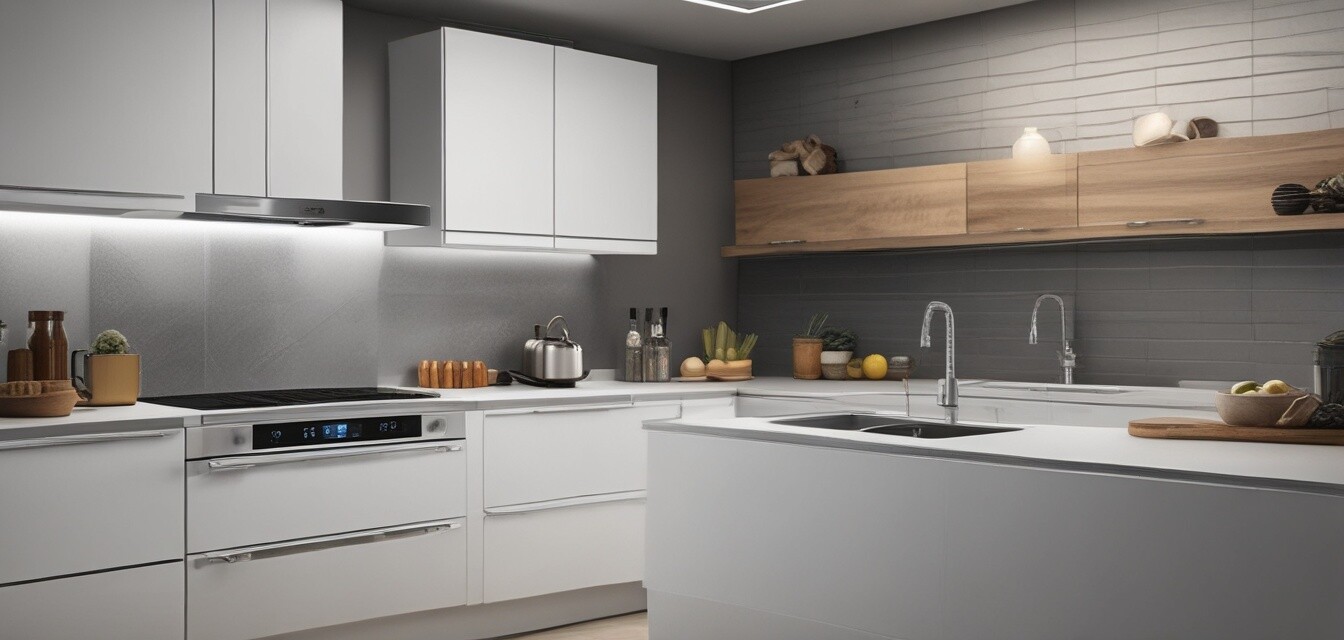
Smart Kitchen Innovations Addressing Common Pain Points
Key Takeaways
- Smart kitchen appliances enhance efficiency and convenience.
- Technologies address common cooking challenges like time management and food waste.
- Integration of smart devices can lead to more sustainable cooking practices.
- Keeping up with kitchen technology trends is vital for modern cooking.
- Smart appliances, such as intelligent cooktops and Bluetooth-enabled devices, are revolutionizing home cooking.
In an evolving technological landscape, kitchens are becoming smarter and more user-friendly. Home cooks often face common challenges such as time management, efficiency, and sustainability. Fortunately, recent innovations in kitchen technology aim to alleviate these pain points. From improving meal preparation to minimizing food waste, smart kitchen appliances are changing the way we cook.
Common kitchen challenges faced by home cooks
Every cook has faced certain challenges while navigating their kitchen. Here are some of the most common pain points:
| Challenge | Description |
|---|---|
| Time management | Lack of efficiency can lead to long cooking times. |
| Food waste | Ingredients go unused or spoil before they can be cooked. |
| Complexity of recipes | Following multiple steps can be overwhelming. |
| Kitchen clutter | Too many tools and appliances can create confusion. |
Innovations revolutionizing kitchen efficiency
The good news is that smart kitchen innovations are tailored to tackle these challenges head-on. Here are some of the most prominent technologies:
- Smart Ovens: Equipped with smart technology that allows for precise cooking and monitoring via mobile apps.
- Touchless Faucets: These faucets reduce mess and promote hygiene by allowing users to wash their hands without touching the handle.
- Intelligent Cooktops: Automatically adjust cooking temperatures, ensuring even cooking and saving energy.
- Bluetooth-Enabled Devices: Seamlessly connect and control appliances from a smartphone, making cooking easier and more intuitive.
- Smart Lighting: Allows cooks to adjust lighting based on the time of day or cooking needs, enhancing visibility and ambiance.
How smart kitchen innovations address common pain points
Now, let's explore how these innovations directly address the common pain points faced by home cooks:
| Common Challenge | Smart Solution | Benefit |
|---|---|---|
| Time management | Smart Ovens with preset functions | Cook meals faster with automation and reminders. |
| Food waste | Inventory management apps for smart refrigerators | Keep track of food and reduce spoilage. |
| Complexity of recipes | Guided cooking features in smart appliances | Step-by-step instructions simplify cooking. |
| Kitchen clutter | Multi-functional appliances | Reduce the number of gadgets needed in the kitchen. |
The future of smart kitchen technology
As technology continues to advance, the future of smart kitchens looks promising. Here are some trends to watch:
- Increased automation: Expect more devices that learn your cooking habits and preferences.
- Sustainability focus: Eco-friendly appliances that minimize energy usage.
- Integration with AI: More appliances will use artificial intelligence to enhance functionality and user experience.
- Personalization: Devices that will offer customized meal plans based on dietary needs and preferences.
Conclusion
Smart kitchen innovations are not just a trend; they are transforming the culinary landscape. By addressing common pain points, these technologies empower home cooks to save time, reduce waste, and enhance their culinary experience. If you're eager to learn more about smart kitchen products and innovations, check out our buying guides, or stay updated with the latest trends in appliance trends.
Pros
- Enhanced efficiency and time-saving features.
- Reduction in food waste through smart detection.
- Guided cooking reduces preparation stress.
- Remote access via mobile apps.
Cons
- Initial investment can be high.
- Dependence on technology may confuse some users.
- Compatibility issues between different brands.